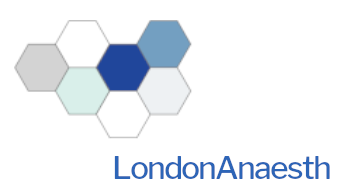School Information
ACCS Training
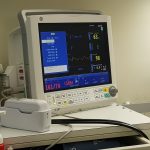
The ACCS programme in anaesthesia is arguably the best core training route into higher training for anaesthesia and/or intensive care. This fantastic three year programme allows trainees exposure to the four acute specialities over two years (6 months each of acute medicine (AM), emergency medicine (EM) in CT1, and 6 months of anaesthesia and intensive … Read more
Out-of-Program Training (OOPE) and career breaks
The School strongly supports trainees who wish to spend time in OOPE/OOPT/OOPR posts, as we believe they are educationally very important. There are multiple different opportunities for you and it is likely that we will know someone who has done it before – so please get in touch if you need any guidance. It would … Read more
Study Leave

We encourage our trainees to take full advantage of all training opportunities that are available to them. Health Education England divides courses, meetings and events into Mandatory Optional, and Aspirational You can find out which category a course falls into at the HEE Website https://lasepgmdesupport.hee.nhs.uk/support/home?studyleave or you can download it from here (updated Nov 2018) Mandatory … Read more
Why choose a career in Anaesthetics?

Anaesthetics are scary. For many patients they are the scariest part of an operation. As a CT1 in anaesthesia you will be trained to manage these fears. Anaesthetists accept the overall responsibility for their patients wellbeing before, during and after an operation. They are the lynchpin that holds everything together, and the people that other … Read more
ARCPs
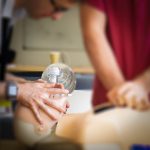
An ARCP – Annual Review of Career Progression – is an opportunity for trainees to Meet their trainers and senior staff in the School Review their progression Get feedback on their progress in training Get support with any difficulties that are experienced Make plans for the coming year. ARCP’s are mandatory and are required by … Read more
Maternity Leave
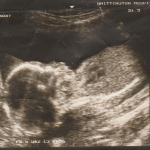
Having a child, and the nine months leading up to it, is a stressful, exciting and monumental event. Combining it with a medical career and a training curriculum is not always easy, and needs careful planning. There is a wealth of information that can easily be Googled. Some useful links are NHS UK Maternity and … Read more
CT1 and Novice Recruitment
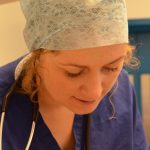
Training in the Central London School of Anaesthesia has historically been extremely popular, and as a result fairly competitive. We pride ourselves in being an approachable, welcoming and friendly team. We welcome any prospective applicants and are happy to have an informal conversation about the school and the application process. We also encourage prospective applicants … Read more
CT1 and CT2 – Novice and Core Training
Core training takes two years. Our trainees spend their first year one of our well-known teaching hospitals – The Royal Free Hospital or University College London Hospital. Our initial placements are for a full year. The second year is spent in one of the district general hospitals on the rotation – Barnet/Chase Farm, The Whittington or … Read more
Inter-Deanery Transfers
Inter-Deanery transfer is the process where a trainee may relocate their training to a different deanery. There are eligibility criteria and specific times of the year for applications (“National IDT windows”). The main reasons for an IDT will be related to a significant unforeseen change in circumstances – health, domestic, relationships. Ability to relocate will … Read more
Flexible and Part-Time Training

The Central London School of anaesthesia is fully supportive of trainees wishing to work less than full time. Currently we have one of the largest numbers of LTFT trainees of any training school in the country with around 35 LTFT trainees. The majority of trainees work 70% of full time equivalent, however, it is possible … Read more
ST3 and ST4 – Intermediate Training
Intermediate Training – ST3 and ST4. Annex C of curriculum As part of the national recruitment process, successful candidates will be offered an initial two year rotation to cover intermediate training. During this time trainees will be placed in hospitals that can deliver all the required units of training. There are seven units of training … Read more
ST3 recruitment
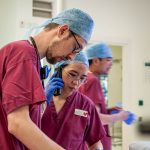
ST3 recruitment is also administered by HEE through the national recruitment process. More information is on their website https://anro.wm.hee.nhs.uk/ST3 There are two recruitment rounds per year and posts start in February and August. The numbers vary from year to year but recently we have been recruiting 10 trainees to start in February and 18 for August starts. … Read more
ST5 to ST7 – Higher and Advanced Training
Higher and Advanced Training – ST5, 6, & 7 Annex D and E of curriculum Once a trainee has passed the final FRCA, we will plan the higher and advanced training years. Trainees can start to work towards higher clinical competencies once they have completed intermediate training units even if they have not passed the … Read more

